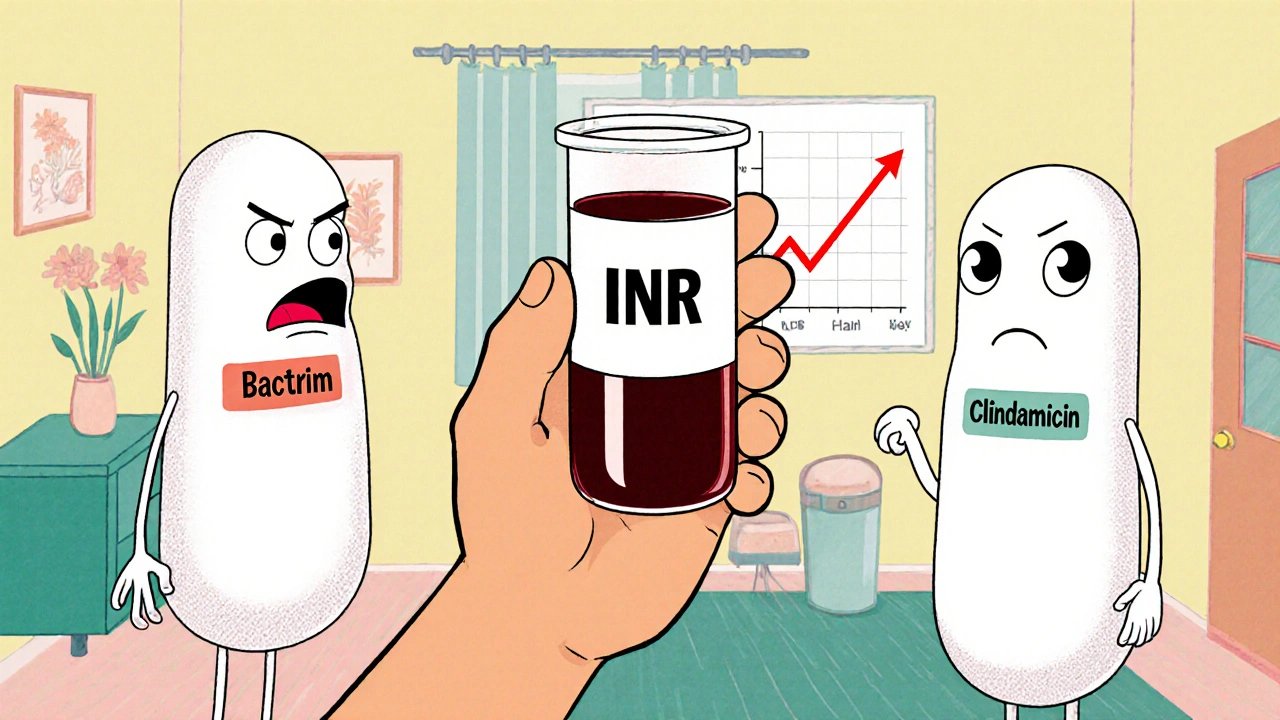Warfarin Interactions: What You Need to Know About Medications and Supplements That Can Be Dangerous
When you take warfarin, a blood thinner used to prevent dangerous clots in people with atrial fibrillation, artificial heart valves, or a history of deep vein thrombosis. Also known as Coumadin, it’s one of the most commonly prescribed anticoagulants—but also one of the most dangerous if not managed carefully. Warfarin doesn’t just work on its own. Its effect depends on what else you’re taking, what you eat, and even how your body processes it. A small change—like starting a new vitamin or switching painkillers—can throw your INR levels off balance, leading to serious bleeding or clotting.
Many people don’t realize that vitamin K, a nutrient found in leafy greens like spinach and kale, directly fights warfarin’s effect. Eating a salad one day and skipping it the next can cause your INR to swing wildly. Then there are over-the-counter pain relievers, like aspirin and ibuprofen, which can increase bleeding risk when taken with warfarin. Even common supplements like garlic, ginkgo, or fish oil can amplify the thinning effect. And don’t forget antibiotics—some, like amoxicillin or ciprofloxacin, can boost warfarin’s power, while others like rifampin can make it useless. These aren’t just warnings on a label. They’re real, documented risks that send people to the ER every day.
What makes warfarin so tricky is that it doesn’t follow simple rules. Two people on the same dose can have totally different responses. Your liver’s enzymes, your diet, your age, even your sleep patterns can change how it works. That’s why regular INR checks aren’t optional—they’re your safety net. If you’re on warfarin, you need to know what to avoid, what to report, and when to call your doctor. You’re not just taking a pill. You’re managing a delicate balance, and the smallest mistake can have big consequences.
Below, you’ll find real-world insights from people who’ve lived with warfarin and the doctors who manage it. You’ll learn which medications are safest to pair with it, which supplements to skip entirely, and how to spot early signs that something’s gone wrong. No fluff. No guesswork. Just what you need to stay safe.

Managing Warfarin and Antibiotics: What You Need to Know About Dangerous Interactions
- Nov, 13 2025
- Daniel Remedios
- 14 Comments
Warfarin and antibiotics can interact dangerously, raising bleeding risk or reducing effectiveness. Learn which antibiotics are high-risk, when to check your INR, and how to stay safe without stopping treatment.
